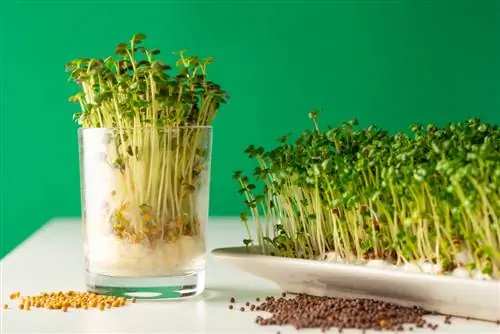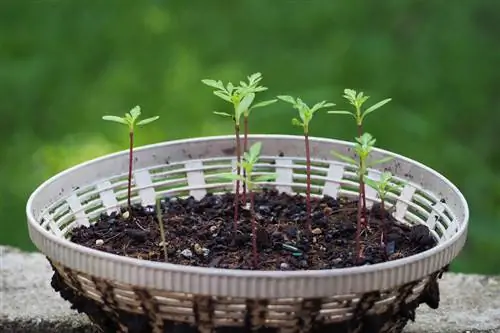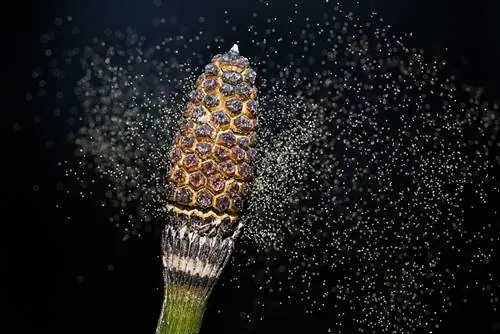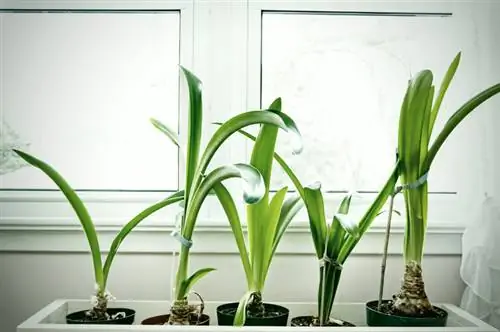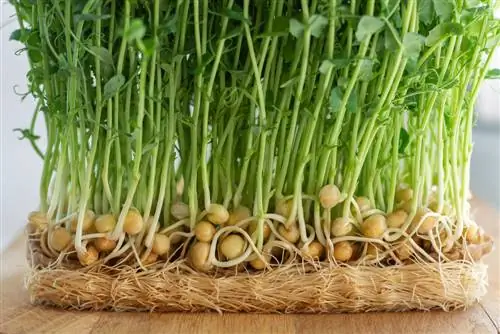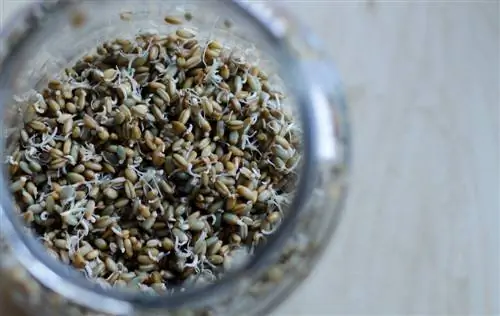- Author admin leonars@hobbygardeners.com.
- Public 2023-12-16 16:46.
- Last modified 2025-01-23 11:22.
The delicate cotyledons are considered a true superfood because they are rich in vitamins and minerals. They also taste fantastic on their own on bread and butter. If you want to grow sprouts yourself, this basic knowledge provides the perfect basis.
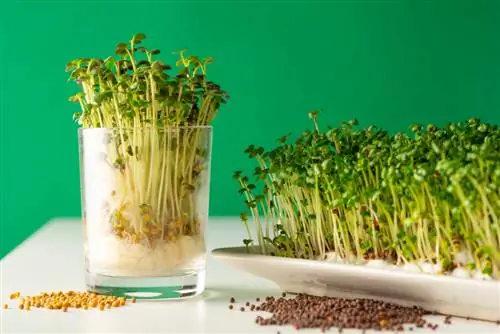
How can I germinate sprouts correctly?
To germinate sprouts successfully, you need clean seeds, a germination jar or bowl, fresh water and a bright location without direct sunlight. Rinse the seeds regularly and ensure a suitable temperature between 18 and 22 degrees.
Non-sliming seeds
Sprouts are easy to grow yourself. Since the seeds germinate quickly, you should only handle them with thoroughly cleaned hands. Rinse the seeds with fresh water. A kitchen strainer is suitable for this step. Storing them in a water bath increases germination success. How long you should let your plant seeds soak depends on the variety. This process can take between four and twelve hours.
After the preparations
Put the prepared material in a germination jar, spread it out on the levels of a germination tower or use a simple tray. A bright location without direct sun ensures an optimal basis for successful germination. As a rule, the grains are rinsed daily or sprayed with water once or twice. Depending on the type of seed, the germination time lasts from two to ten days. You can freeze the sprouts or eat them directly.
Mucus-forming seeds
After swelling, some seeds themselves produce a mucous coating that stores moisture. This effect improves germination and occurs with rocket or cress. To prevent the grains from rotting, you should line a shallow bowl with a germination fleece and sprinkle the seeds on it.
Procedure:
- pick out damaged seeds
- Water seeds only briefly
- Store the bowl at a maximum of 22 degrees and cover with foil
- spray with water daily until germination
- Remove covers once a day for ventilation
Tip
Mix slime seeds with varieties such as red clover or alfalfa, whose seeds do not produce slime. This causes the gel-like outer shell to thin automatically.
Why seeds don't sprout
If the seeds are stored too close together in the germination container, they don't get enough air and light. Such defects can negatively affect the germination result. Incorrect watering has the same effect. Plant seeds usually require a temperature between 18 and 22 degrees. If the thermometer rises or falls, growth stagnates. Find out more about the respective seeds to avoid mistakes.
What helps against mold formation
Moisture and warm temperatures promote the growth of unwanted mold. Due to their cottony and white flaky appearance, mold infestation in the early stages is easily confused with the fine fibrous roots. Musty earth smells provide information about the spread of fungi. This finds optimal growth conditions on seeds that have not been washed sufficiently. Thorough hygiene is the most important preventive measure. Keep the germinator clean. Make sure that the seeds can drain well and are not wet.

